Filter by
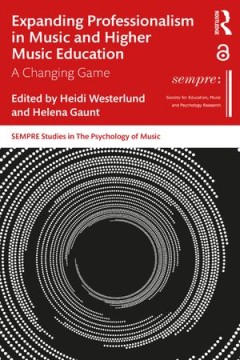
Expanding Professionalism in Music and Higher Music Education : A Changing Game
This book addresses the need to rethink the concept and enactment of professionalism in music, and how such concepts underpin professional higher music education. There is an urgent imperative to enable the potential of professional musicians in our contemporary societies to be more fully realised, recognising both intense challenges that are currently threatening some traditional music practic…
- Edition
- -
- ISBN/ISSN
- 9781003108337
- Collation
- 182 halaman
- Series Title
- -
- Call Number
- 370 EXP
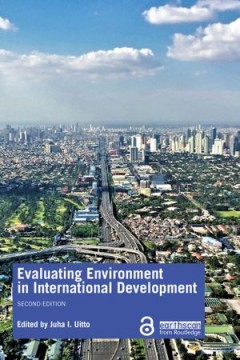
Evaluating Environment in International Development
This book provides novel and in-depth perspectives on evaluating environment and sustainability issues in developing countries. Evaluating Environment in International Development focuses on the approaches and experiences of leading international organizations, not-for-profits, and multilateral and bilateral aid agencies to illustrate how systematic evaluation is an essential tool for provid…
- Edition
- -
- ISBN/ISSN
- 9781003094821
- Collation
- -
- Series Title
- -
- Call Number
- 338.9 EVA
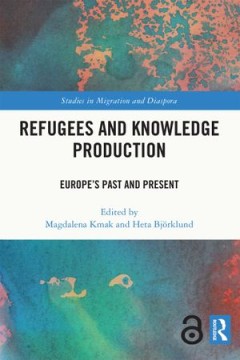
Refugees and Knowledge Production: Europe's Past and Present
Building on research within the fields of exile studies and critical migration studies and drawing links between historical and contemporary ‘refugee scholarship’, this volume challenges the bias of methodological nationalism and Eurocentrism in discussing the multifaceted forms of knowledge emerging in the context of migration and mobility. With critical attention to the meaning, productio…
- Edition
- -
- ISBN/ISSN
- 9781000568363
- Collation
- -
- Series Title
- -
- Call Number
- 301 REF r
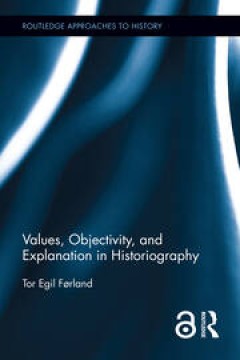
Values, Objectivity, and Explanation in Historiography
Bringing sophisticated philosophy to bear on real-life historiography, Values, Objectivity, and Explanation in Historiography rekindles and invigorates the debate on two perennials in the theory and methodology of history. One is the tension between historians' values and the ideal—or illusion—of objective historiography. The other is historical explanation. The point of departure for the …
- Edition
- -
- ISBN/ISSN
- 9781315470979
- Collation
- -
- Series Title
- -
- Call Number
- 306
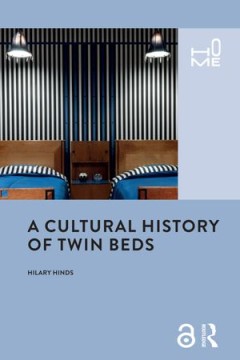
A Cultural History of Twin Beds
A Cultural History of Twin Beds challenges our most ingrained assumptions about intimacy, sexuality, domesticity and hygiene by tracing the rise and fall of twin beds as a popular sleeping arrangement for married couples between 1870 and 1970. Modern preconceptions of the twin bed revolve around their use by couples who have no desire to sleep in the same bed space. Yet, for the best part of a …
- Edition
- -
- ISBN/ISSN
- 9781003084327
- Collation
- -
- Series Title
- -
- Call Number
- 300
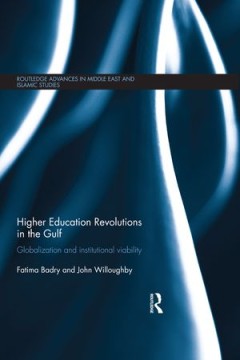
Higher Education Revolutions in the Gulf : Globalization and Institutional Vi…
Over the past quarter century, the people of the Arabian Peninsula have witnessed a revolutionary transformation in higher education. In 1990, there were fewer than ten public universities that offered their Arabic-language curricula in sex-segregated settings to national citizens only. In 2015, there are more than one hundred public, semi-public, and private colleges and universities. Most of …
- Edition
- 1st Edition
- ISBN/ISSN
- 9781134450121
- Collation
- -
- Series Title
- -
- Call Number
- 378 BAD h
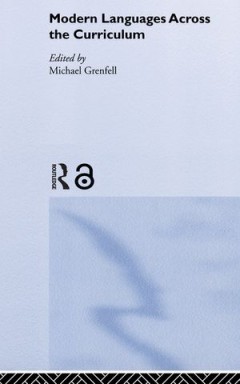
Modern Languages Across the Curriculum
This book sets out the agenda for the future of modern language teaching in schools. It aims to look beyond the dominant methods of second language teaching to a new approach emphasising the integration of language learning within the wider curriculum. Through research and case studies from the UK, France, Spain, Italy, Germany, Belgium and Finland, the book shows how teachers and policy makers…
- Edition
- -
- ISBN/ISSN
- 9781136850806
- Collation
- -
- Series Title
- -
- Call Number
- 370 MOD
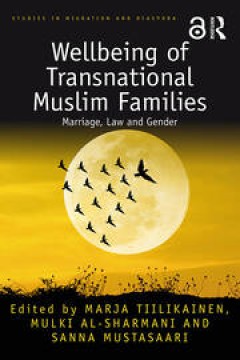
Wellbeing of Transnational Muslim Families : Marriage, Law and Gender
ABSTRACT This book examines the needs, aspirations, strategies, and challenges of transnational Muslim migrants in Europe with regard to family practices such as marriage, divorce, and parenting. Critically re-conceptualizing ‘wellbeing’ and unpacking its multiple dimensions in the context of Muslim families, it investigates how migrants make sense of and draw on different norms, laws, and…
- Edition
- -
- ISBN/ISSN
- 9781315231976
- Collation
- -
- Series Title
- -
- Call Number
- 300
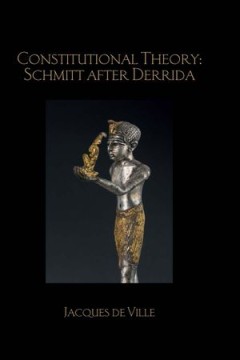
Constitutional Theory : Schmitt after Derrida
This book advances a new reading of the central works of Carl Schmitt and, in so doing, rethinks the primary concepts of constitutional theory. In this book, Jacques de Ville engages in a close analysis of a number of Schmitt’s texts, including Dictatorship (1921), The Concept of the Political (1927), Constitutional Theory (1928), Land and Sea (1942), Ex Captivitate Salus (1950), The Nomos of…
- Edition
- -
- ISBN/ISSN
- 9781351866392
- Collation
- 230 halaman
- Series Title
- -
- Call Number
- 340 VIL c
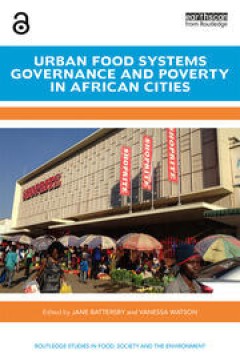
Urban Food Systems Governance and Poverty in African Cities
As Africa urbanises and the focus of poverty shifts to urban centres, there is an imperative to address poverty in African cities. This is particularly the case in smaller cities, which are often the most rapidly urbanising, but the least able to cope with this growth. This book argues that an examination of the food system and food security provides a valuable lens to interrogate urban poverty…
- Edition
- -
- ISBN/ISSN
- 9781315191195
- Collation
- -
- Series Title
- -
- Call Number
- 370
 Computer Science, Information & General Works
Computer Science, Information & General Works  Philosophy & Psychology
Philosophy & Psychology  Religion
Religion  Social Sciences
Social Sciences  Language
Language  Pure Science
Pure Science  Applied Sciences
Applied Sciences  Art & Recreation
Art & Recreation  Literature
Literature  History & Geography
History & Geography